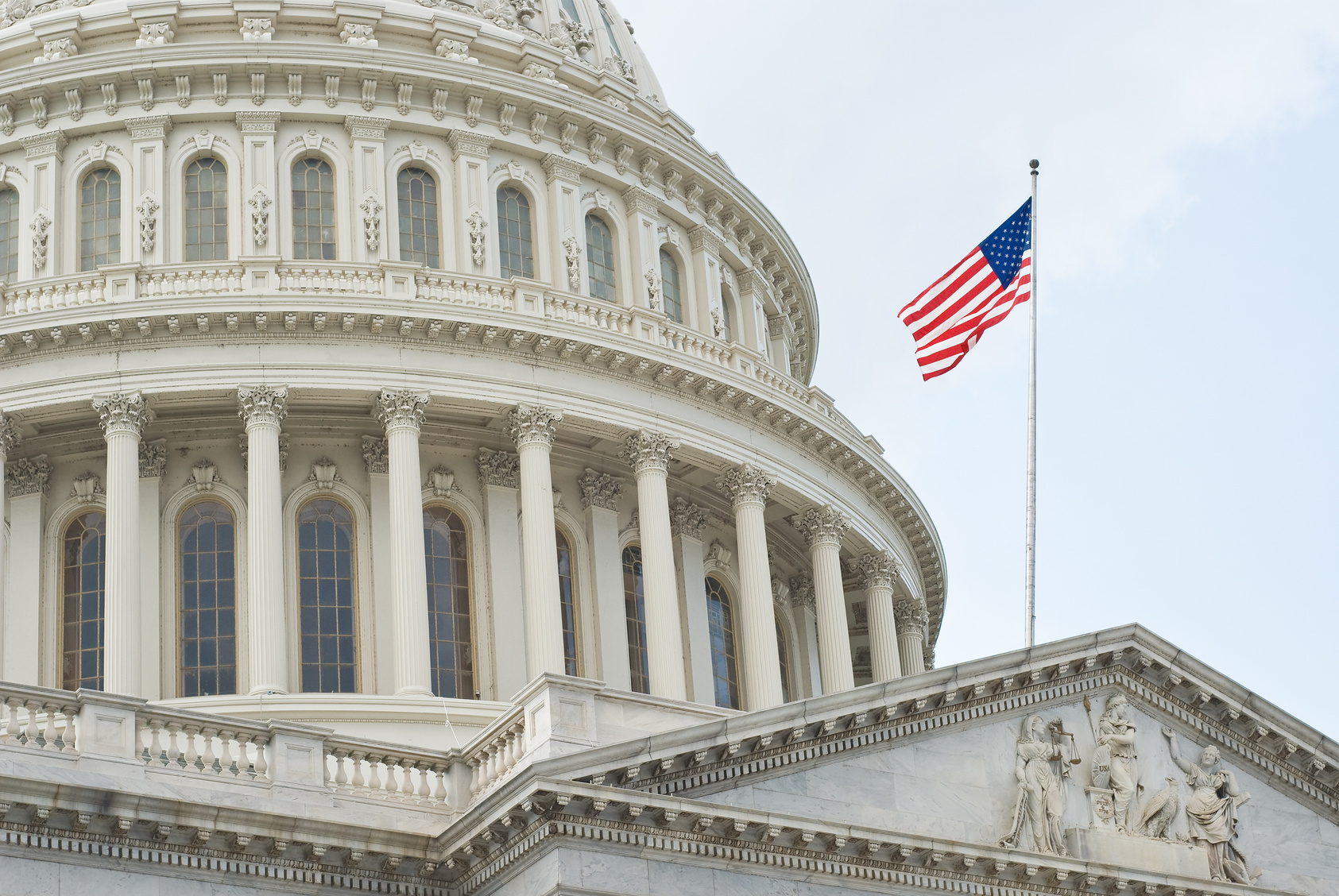The One Big Beautiful Bill Act: What’s in it and why small business owners should care
The One Big Beautiful Bill Act: What’s in it and why small business owners should care
Thursday, July 10, 2025, 12:00pm EST
This webinar will review small business-related provisions within the “One Big Beautiful Bill Act.” NFIB”s Vice President of Federal Government Relations, Jeff Brabant, will discuss the key issues affecting small business owners within the bill with a focus on tax related provisions. Tax provisions discussed will include but not be limited to the following: 20% small business tax deduction (Section 199A), marginal (individual) rate changes, Estate Tax Exemption changes, Section 179 expensing changes, Research and Development (R&D) expensing changes, and changes to the SALT (State and Local Tax Deduction changes). Brabant will also be available to answer questions at the end of the webinar.

What provisions in the bill are most important to small business owners
 How small business taxes will change next year
How small business taxes will change next year
 What would have happened if the bill hadn’t passed
What would have happened if the bill hadn’t passed
 Everything you need to know on small business taxation in the One Big Beautiful Bill
Everything you need to know on small business taxation in the One Big Beautiful Bill



One Big Beautiful Bill (Business Provision Summaries)
20% Small Business Tax Deduction (Section 199A)
- 20% Small Business Tax Deduction (Section 199A)
This bill permanently extends the 20% Small Business Deduction - Allows pass-through entities to deduct up to 20% of their qualified business income
- Without Congressional action, this provision would have expired at the end of the calendar year.
- Permanency of the small business deduction allows small businesses to grow, hire, and invest in their workforce.
Marginal (Individual) Rates
- This bill permanently extends the current federal marginal rates, which were scheduled to expire and increase at the end of the year.
- Current federal marginal rates are: 10%, 12%, 22%, 24%, 32%, 35%, 37%
- If allowed to expire, they would have increased to: 10%, 15%, 25%, 28%, 33%, 35%, 39.6%.
- By permanently extending the lower marginal rates enacted in 2017 Congress is preventing a tax increase on about 33 million pass-through businesses subject to marginal rate taxes.
Estate Tax
- This bill permanently enshrines the Estate Tax exemption and increases the exemption levels of $15 million individually and $30 million jointly, and is indexed for increases with inflation.
- The estate tax is a tax on the transfer of an estate and or property upon the death of the owner.
- By making this provision permanent, it allows small business owners to maintain their business and property without having to sell or liquidate to pay the tax.
Section 179
- This bill increases Section 179 expensing cap from $1.25 million to $2.5 million and allows for increases with inflation.
- Section 179 allows businesses to deduct the full purchase price of qualifying equipment in the year it is acquired.
- The higher maximum deduction and permanency allow small business owners to significantly reduce taxable income and plan for future investments.
Form 1099-K
- This legislation increases the threshold requiring Form 1099-K from $600 to $20,000.
- Section 1099-K is an IRS report that businesses must file for any third-party payment transactions above a certain threshold during the year.
- The higher threshold minimizes burdensome IRS paperwork that small businesses must comply with while using third-party payments such as Venmo or PayPal.
Form 1099-NEC
- This legislation increases the information-reporting threshold from $600 to $2,000 in a calendar year and indexed annually for inflation after 2026.
- Form 1099-NEC is used by businesses to report payments made to non-employees, such as independent contractors, for services rendered during the calendar year.
- The higher threshold minimizes burdensome IRS paperwork for small businesses.
Form 1099-MISC
- This legislation increases the information-reporting threshold from $600 to $2,000 in a calendar year and indexed annually for inflation after 2026.
- Form 1099-MISC is used to report various payments not classified as nonemployee compensation.
- The higher threshold minimizes burdensome IRS paperwork for small businesses.
Section 168(k) (Bonus Depreciation)
- This legislation permanently restores 100% immediate expensing for eligible assets.
- Section 168(k), bonus depreciation, allows businesses to take an additional first-year deduction for qualified property in the year it is placed in service.
- Without Congressional action, businesses would have to amortize these expenses over a number of years.
- The increased expensing threshold allows businesses to fully deduct property acquired and placed in service after January 2025
Research and Development Expensing
- This legislation allows all research and development costs to be immediately deducted.
- Research and development allows taxpayers to immediately deduct domestic research or experimental expenditures paid or incurred in the tax years beginning after December 31, 2024.
- Being able to deduct research and development costs immediately allows businesses to improve, upgrade, and innovate new products and services
Section 163(j)
- This legislation reinstates the EBITDA (earnings before interest, income tax, depreciation, and amortization) limitation for the tax years beginning after December 31, 2024
- Section 163(j) limits deductions on business interest expenses
- The reinstatement of EBITDA limitations allows small businesses to make use of more interest deductions
C-Corp Rate
- The C-Corp rate permanently remains at 21%
SALT (State and Local Tax Deductions)
- This legislation increases the limit on the federal deduction for state and local taxes to $40,000 and adjusts for inflation. After 2029, this increase will expire.
- This deduction begins to phase out at $500,000 of adjusted gross income. Once fully phased out, taxpayers revert to receiving a maximum of $10,000 in SALT deduction.
- The SALT deduction allows taxpayers to deduct certain state and local taxes from their federal taxable income.
AMT (Alternative Minimum Tax)
- This legislation permanently extends the increased individual alternative minimum tax exemption amounts and reverts the exemption phaseout thresholds to $500,000 for individual filers and $1 million for married filers.
No Tax on Tips
- This legislation creates a temporary deduction, for tax years 2025 through 2028, of up to $25,000 for qualified tips received by an individual who regularly receives tips.
No Tax on Overtime
- This legislation creates a temporary deduction, for tax years 2025 through 2028, of up to $12,500 individually, and $25,000 jointly, for qualified overtime compensation received each year.
Miscellaneous Provisions
Eliminates Climate Disclosure Funding
- This legislation repeals funding for the EPA to implement greenhouse gas corporate reporting that was included in the Inflation Reduction Act (IRA).
- The Biden Administration sought to impose greenhouse gas climate disclosures for public and private businesses.
- Climate disclosures would significantly increase red tape and compliance burdens for small businesses.
Prevents Oil and Gas Methane Tax
- This legislation prevents a tax on methane emissions from oil and gas production that was included in the Inflation Reduction Act (IRA).
- This tax would increase energy production costs, which would be passed along to small businesses and consumers in the form of higher energy costs.
Health Savings Account Expansion
- This legislation allows Direct Primary Care memberships to be purchased through a Health Savings Account (HSA).
- This expansion increases health options and provides greater flexibility for small businesses to provide care for their employees.
Speaker









